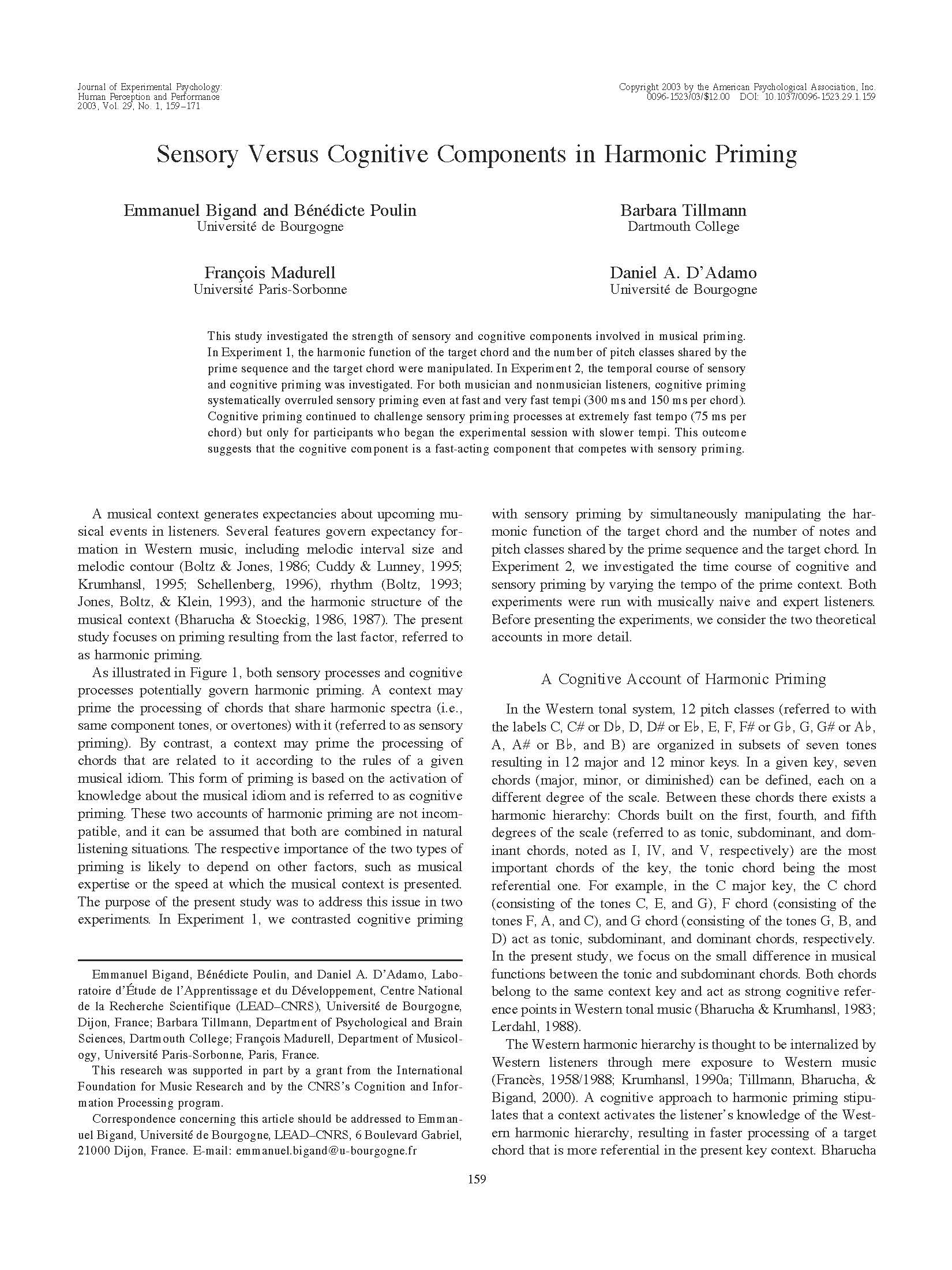This study investigated the strength of sensory and cognitive components involved in musical priming. In Experiment 1, the harmonic function of the target chord and the number of pitch classes shared by the prime sequence and the target chord were manipulated. In Experiment 2, the temporal course of sensory and cognitive priming was investigated. For both musician and nonmusician listeners, cognitive priming systematically overruled sensory priming even at fast and very fast tempi (300 ms and 150 ms per chord). Cognitive priming continued to challenge sensory priming processes at extremely fast tempo (75 ms per chord) but only for participants who began the experimental session with slower tempi. Ibis outcome suggests that the cognitive component is a fast-acting component that competes with sensory priming.
Sensory versus cognitive components in harmonic priming
